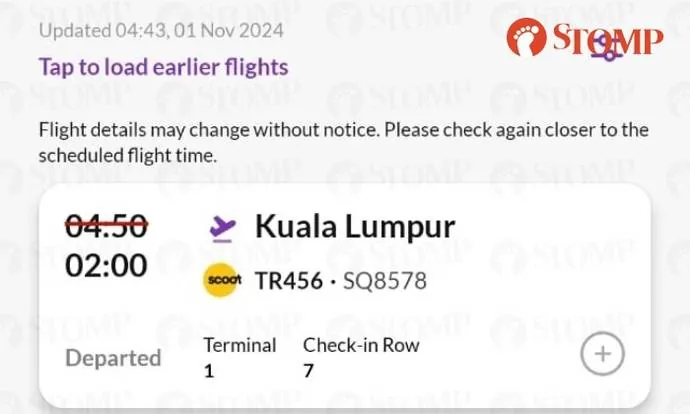
Singapore Soars in Global Adult Literacy and Numeracy Rankings: What This Means for the Future!
2024-12-10
Author: Rajesh
SINGAPORE:
In a remarkable turnaround, Singapore has made significant strides in its rankings for adult literacy, numeracy, and adaptive problem-solving skills, according to the latest findings from the Programme for the International Assessment of Adult Competencies (PIAAC). The study, conducted as a joint initiative by the Ministry of Education, SkillsFuture Singapore (SSG), and the Institute for Adult Learning, offers valuable insights into the capabilities of the Singaporean workforce and highlights the nation's commitment to continual learning and development.
Ranking Improvements
Singapore emerged as the leading country in terms of improvement in numeracy, now ranking 10th out of 31 nations, a dramatic rise from its position at 25th in the previous assessment cycle (2014 to 2015). This cycle, held between 2022 and 2023, revealed that Singapore's mean score for numeracy proficiency exceeds the Organisation for Economic Cooperation and Development (OECD) average, showcasing the nation's commitment to enhancing mathematical skills among its adults.
In terms of literacy, Singapore's scores remained stable yet showed a pleasing upward trajectory in rankings, increasing from 28th to 18th among 31 countries. Despite this progress, Singapore still falls short of the OECD average, indicating room for further improvement. Additionally, the study introduced a new category—adaptive problem-solving—where Singapore matched the OECD average with a score of 252.
Expert Insights
"The findings indicate a collective improvement in the ability of Singaporeans to acquire new skills and advance their careers," commented Ms. Pao Jia Yu, Deputy Chief Executive for Planning at SSG. While celebrating the accomplishments, she emphasized the importance of continued efforts to upskill and reskill, spotlighting Singapore's forward-thinking ethos in workforce development.
How the Study Was Conducted
Approximately 5,000 participants, aged 16 to 65, contributed to the study, which examined literacy, numeracy, and adaptive problem-solving abilities. The testing was held in person and primarily in English, the country's main working language. Participants began with a background questionnaire assessing various demographic and educational factors before embarking on a series of tailored tests that gauged their current skills.
Key Findings and Observations
The report reveals intriguing connections between numeracy proficiency and employment opportunities, suggesting that individuals with higher numeracy skills tend to occupy positions with higher wages. Additionally, Singapore's workforce participation in continuous education ranks comparably with the OECD average, with over half of respondents citing job-related training as a means to bolster their performance and career prospects.
The data also unveils generational disparities in skill levels. While younger Singaporeans aged 16 to 34 excelled, outperforming the OECD average, older adults aged 55 to 65 showed lower proficiency across the board. The findings echoed trends seen in other participating countries, where proficiency tends to dip with age.
Furthermore, a clear divide emerged based on education levels, with tertiary-educated adults scoring significantly higher than those with less educational attainment. Notably, Singapore saw a decline in literacy proficiency starting at an earlier age compared to other nations, stressing the importance of life-long learning and continuous engagement with education in mitigating this trend.
Future Initiatives
Looking ahead, SSG is committed to ensuring that Singaporeans have access to necessary resources for skills development. Initiatives such as the S$4,000 (US$3,000) SkillsFuture credit top-up for citizens aged 40 and above aim to encourage ongoing education. "It's crucial for workplaces to serve as environments for skill enhancement," Ms. Pao stressed, highlighting the integral link between industry practices and educational growth.
With these promising results, Singapore stands poised to continue its evolution as a global leader in adult education, but with an eye toward future challenges in an ever-changing world. Will Singapore's ongoing commitment to reskilling be enough to stay ahead of the curve? Only time will tell!



 Brasil (PT)
Brasil (PT)
 Canada (EN)
Canada (EN)
 Chile (ES)
Chile (ES)
 España (ES)
España (ES)
 France (FR)
France (FR)
 Hong Kong (EN)
Hong Kong (EN)
 Italia (IT)
Italia (IT)
 日本 (JA)
日本 (JA)
 Magyarország (HU)
Magyarország (HU)
 Norge (NO)
Norge (NO)
 Polska (PL)
Polska (PL)
 Schweiz (DE)
Schweiz (DE)
 Singapore (EN)
Singapore (EN)
 Sverige (SV)
Sverige (SV)
 Suomi (FI)
Suomi (FI)
 Türkiye (TR)
Türkiye (TR)